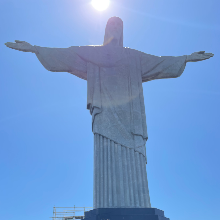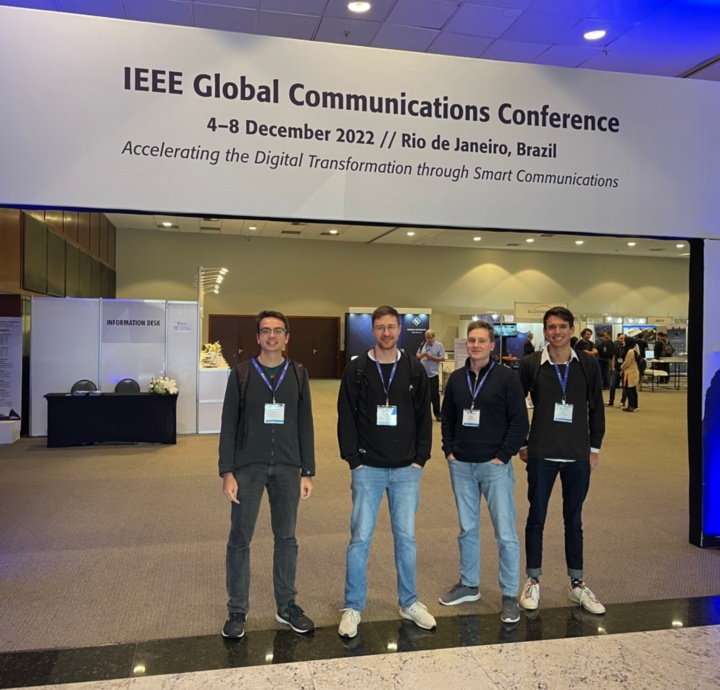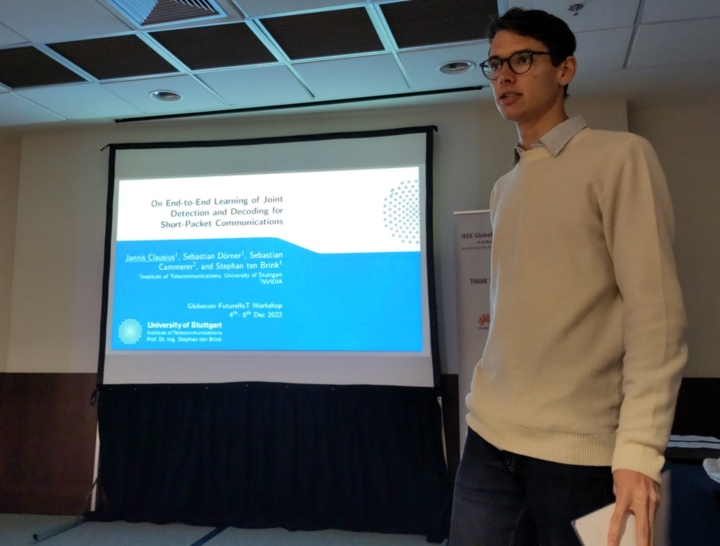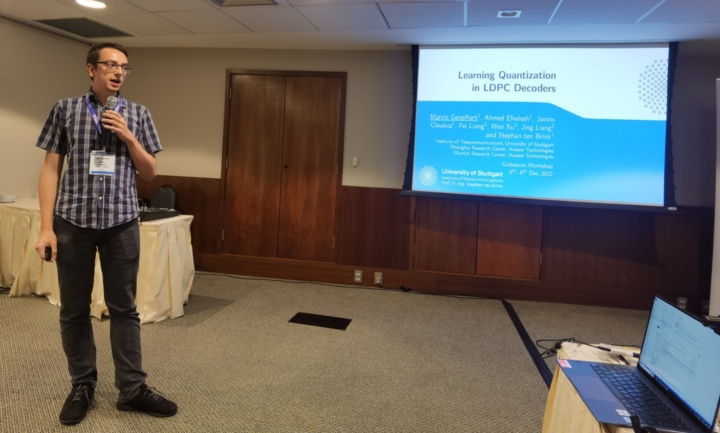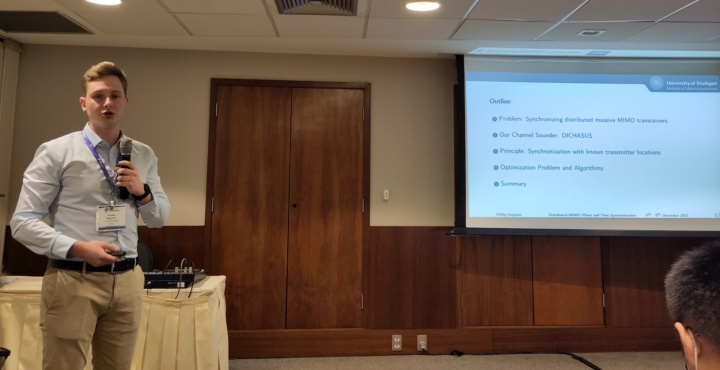The IEEE Global Communications Conference (GLOBECOM) is one of the flagship conferences of the IEEE Communications Society and took place this year in Rio de Janeiro. With its several thousand participants and the wide-ranging programme, it offered an incomparable platform for scientific exchange and further development of technologies. The various contributions within the framework of workshops, technical papers, tutorials or keynotes provided an insight into the vision of tomorrow's efficient and effective communication.
A delegation of four INÜ PhD candidates attended the conference and presented three papers:
- Geometry-Based Phase and Time Synchronization for Multi-Antenna Channel Measurements
- Learning Quantization in LDPC Decoders
- On End-to-End Learning of Joint Detection and Decoding for Short-Packet Communications
Contribution to Joint Detection and Decoding:
In recent years Information Theorists showed that splitting a frame into pilots and payload is suboptimal in the short block length regime. While the gains look promising in theory, one key challange is the conceptual design of such a system.
At GLOBECOM 2022 we presented such a system design for Joint Detection and Decoding. Accordingly, it was proposed in the associated paper „On End-to-End Learning of Joint Detection and Decoding for Short-Packet Communications“.
Our approach is based on a Neural Network structure allowing the transmitter to learn holisitc messages that are no longer restricted to a dedicated preamble and the receiver to detect and decode the holisitc message. In Simulations we showed gains in terms of specrtal efficiency and reliabilty compared to a classical system for block lengths up to 100 Bits.
Contribution to LDPC Decoding
Low-Density Parity Check (LDPC) codes are the error-correcting workhorse of modern communication systems like wireless LAN and 5G mobile telecommunication. LDPC codes are typically decoded using an interative message-passing algorithm, where real-valued messages are exchanged between different processing units. Practical hardware implementations require those messages to be quantized, i.e., be represented by a small number of bits. The decoding complexity (chip area and power consumption) is highly dependent on these message bitwidths.
Our work presented at GLOBECOM 2022 considers the optimization of the bitwidths of all messages using deep-learning algorithms. We introduce a so-called surrogate model to make the bitwidths trainable and optimize the complexity and error-correcting performance of the decoder jointly. We show that this approach results in lower complexity decoder implementations for 5G LDPC codes and that the learned parameters also generalize to other code rates and channels.
Contribution to Phase and Time Synchronization for Distributed Massive MIMO systems:
Distributed Massive MIMO is one of the crucial technologies to improve spectral efficiency in future wireless systems. A challenge for its practical realization is the synchronization of the individual tranceiver chains.
Our channel sounder called DICHASUS collects almost perfectly synchronous channel measurements in terms of phase and frequency thanks to an over-the-air reference signal broadcast. However, due to the unknown channels between the reference transmitter and each receiver, antenna-specific phase and time offsets are inevitable. These offsets make classical array signal processing such as angle-of-arrival estimation impossible.
At GLOBECOM 2022, we presented our paper „Geometry-Based Phase and Time Synchronization for Multi-Antenna Channel Measurements“, which proposes a compensation method for these phase and time offsets using several well-known transmitter locations.


